Welcome back Readers and History-Lovers!
Previously, in Part I of this two-part series on government in ancient Rome. we looked briefly at the popular assemblies which gave all male Roman citizens a measure of decision-making power when it came to their city and growing empire. If you missed that post, you can read it HERE.
In Part II, we’re going to be taking a brief look at what was arguably the real power behind Roman government during the Republican era: the Senate.
SPQR. Senatus Populusque Romanus. The Senate and People of Rome.
For a very long time, the initials SPQR stood for power, civilization, democracy and a government that spoke and worked for the people.
We’ve already taken a look at the ‘People’ portion, so now let us take a very brief look at the Senate of ancient Rome.
The Senate was really the ruling body behind Roman government. It was made up of a group of unelected men, and in the early Republican era, those men were only Patricians. It was later that Plebeians were permitted to join the ranks of the Senate.
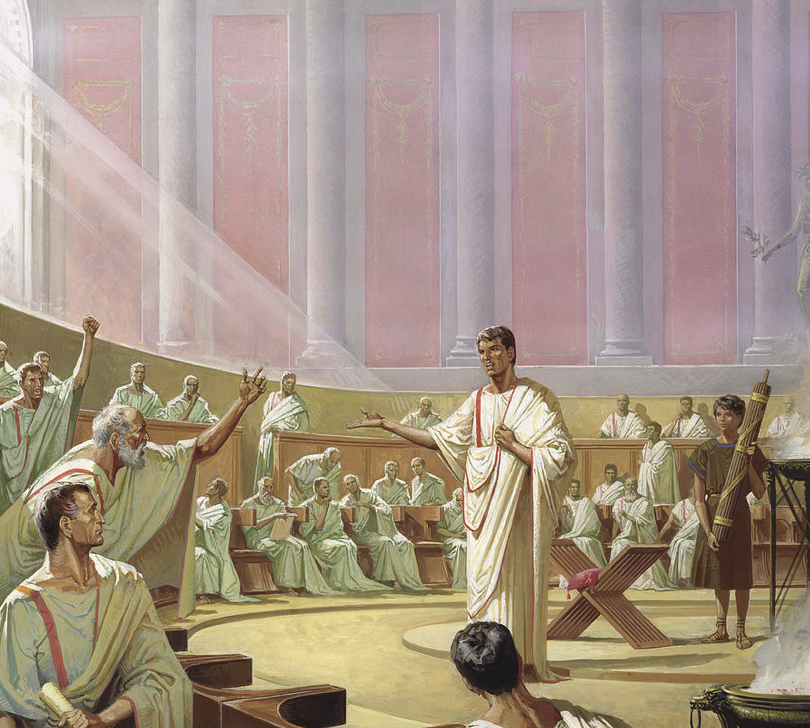
Debate In The Early Roman Senate (by Severino Baraldi)
In the mid to late Republic, if a man was elected to a magistracy by the comitia, the popular assemblies we spoke of last time, he was automatically admitted to the Senate for life. The only way a senator could be expelled was if he was found guilty of some sort of severe misconduct.
Originally, there were one hundred members of the Senate. Then, this was increased to three hundred, and then in 80 B.C. to six hundred. Under Julius Caesar, when he was padding the Senate with his own supporters, the number reached nine hundred!
But what was the purpose of the Senate?
Originally, the Senate was a body of noble men who were to advise Rome’s elected magistrates and put forward laws, or leges, which the comitia could vote on. From the third century B.C., with the advent of the second Punic War and the great threat posed by Hannibal, the Senate’s powers were increased greatly.
Not only did the Senate prepare legislation to be voted on by the comitia, it also administered Rome’s finances, was in charge for foreign relations, and oversaw state religion. By the second and first centuries B.C., the Senate was pretty well the government of Rome, largely controlling the comitia and the elected magistrates.
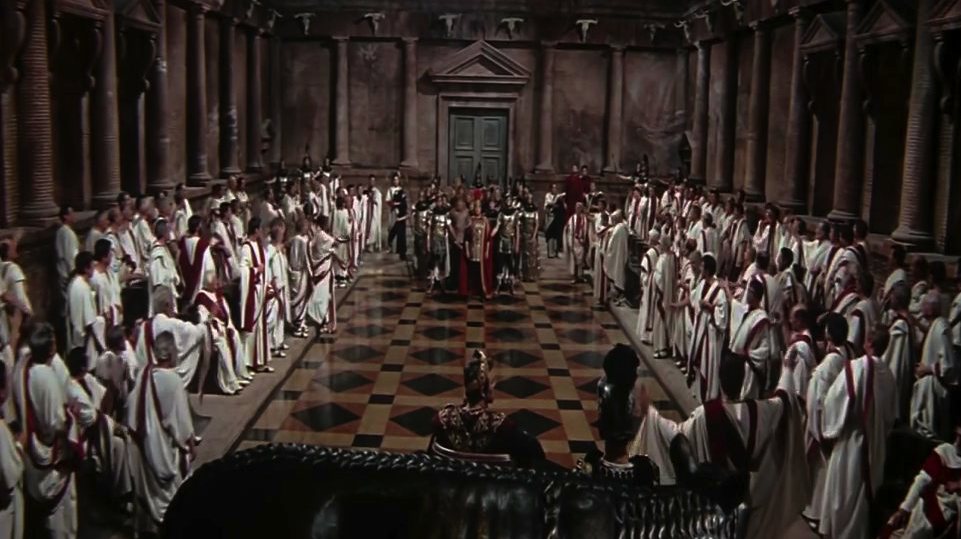
The Senate of Rome in session in the Curia Julia (screen shot from the 1964 film The Fall of the Roman Empire)
Early on, the Senate could not make laws – those had to be voted on by the comitia – but it could issue decrees or decreta, also known as senatus consulta.
There was a lot of power and influence up for grabs when one was a Senator, but other than being an elected magistrate, what were the other criteria for joining the Senate?
To be a senator, one had to have a private income. There was no salary involved.
For Patricians in ancient Rome, becoming a Senator was another a part of the pursuit of power for themselves, for their families, and their friends. The education of Patrician or Senatorial class men was preparation for politics, for to the nobles of Rome, politics was everything, and it influenced friendships, marriages and divorces.
But this was a small percentage of Rome’s population, and there were intense rivalries. There were divisions, of course.
Senators included a group whose ancestors had held curule magistracies and consulships, and these men were known as nobiles, or ‘well-knowns’, and they could be Patrician or Plebeian.
Another group that later emerged in the ranks of the Senate was the novus homo, or ‘new man’. A novus homo was the first man in a family to hold a curule magistracy. The most famous such ‘new man’ is perhaps Cicero.
For an excellent novel on the rise of Cicero, you may wish to check out Robert Harris’ Cicero trilogy, beginning with Imperium.
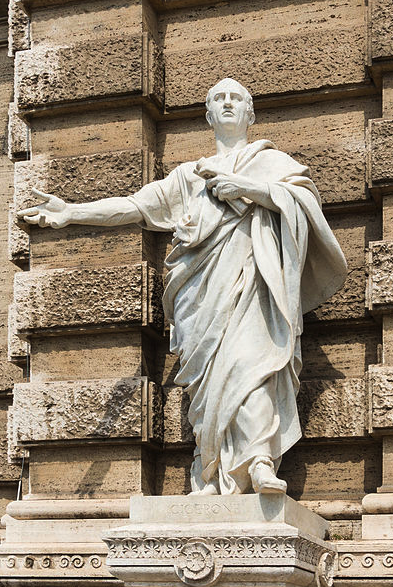
Cicero
Meetings of the Senate were only attended by senators and the Flamen Dialis, the high priest of Jupiter. But the public could gather at the open doors in the vestibule of the Senate.
The meetings were originally held in the Curia Hostilia in the northwest corner of the Forum Romanum, but in actuality they could take place in any consecrated, public place within 1.6 kilometres of Rome. There was no fixed order for seating.
But what happened to the Senate under Rome’s emperors? Did it still have the power and sway that it used to?
The simple answer is no, not really.
However, in ancient Rome, tradition itself was a powerful thing, and the Senate was central to Rome’s traditions. For the sake of tradition, and perhaps popular opinion, no emperor tried to abolish the Senate, but they did impede its powers.
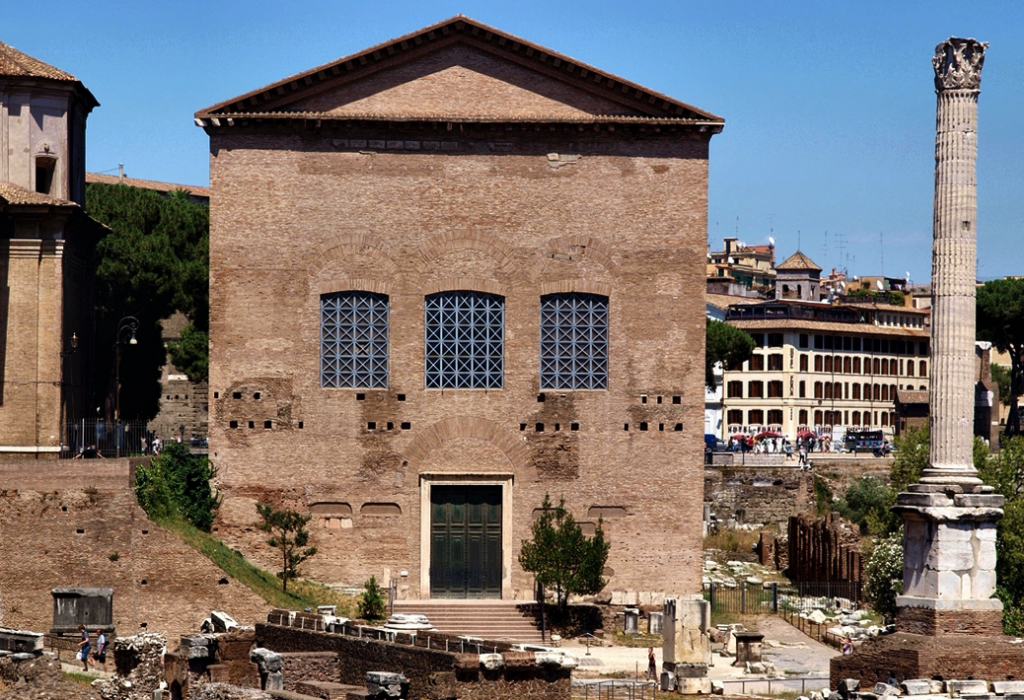
The Senate House, or ‘Curia’. This is the Curia Julia, built by Caesar and finished by Augustus after the previous two – the Curia Hostilia and the Curia Cornelia – were destroyed.
Under Augustus, the Senate was granting increasing powers to the emperor and, as a result, its own power was greatly reduced. However, by Augustus’ reign, there were over one thousand senators. Rome’s first emperor reduced that number to six hundred and also imposed a property qualification of one million sesterces for being admitted to the Senate.
Because Rome’s empire was expanding greatly, the Senate began to fill with men from noble families from the provinces.
What the Senate still did was control the state treasury, the aerarium, and create laws as a legislative body.
For better or for worse, perhaps depending on the type of emperor upon the throne, the power of the Roman Senate was gradually waning, and in A.D. 359, Emperor Constantine created another senate in his new capital of Constantinople, thereby creating two senates in the empire.
By A.D. 384, each senate had about two thousand members, and though it continued as a legislative body, it would never be the same.
The last mention of the Roman Senate was in A.D. 603 around a declaration of new statues of Emperor Phocas and Empress Leontia.
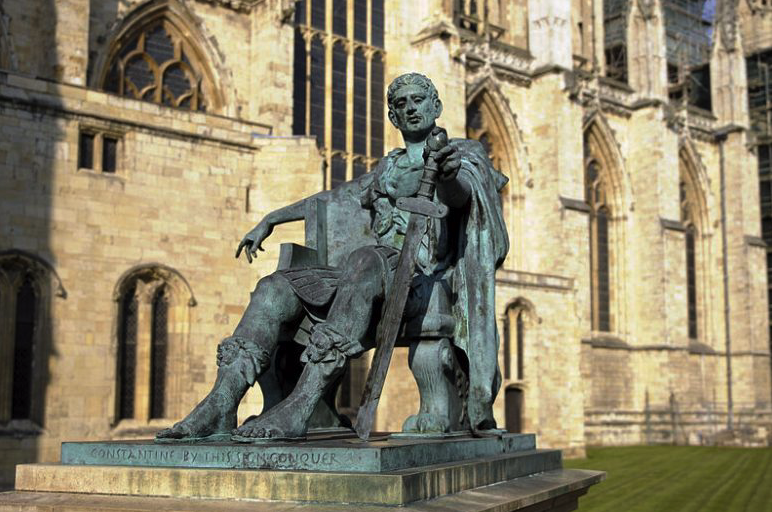
Constantine the Great (c.272 – 337) – Statue outside York Minster
We’ve only barely scraped the surface on the subject of the Senate of ancient Rome. This is a massive and fascinating subject. Hopefully this short post has given you an idea as to how the Senate fit into the government and workings of ancient Rome.
The slow death of tradition is not an easy thing. We are loathe to let go of our traditions. One can imagine the hardcore republicans during the time of Caesar and Augustus experiencing many a sleepless night at what they probably knew was coming.
Of course, they managed to stop Caesar, but by the time Augustus was on his imperial throne, the damage to the Senate had already been done, the gradual process of waning power was underway.
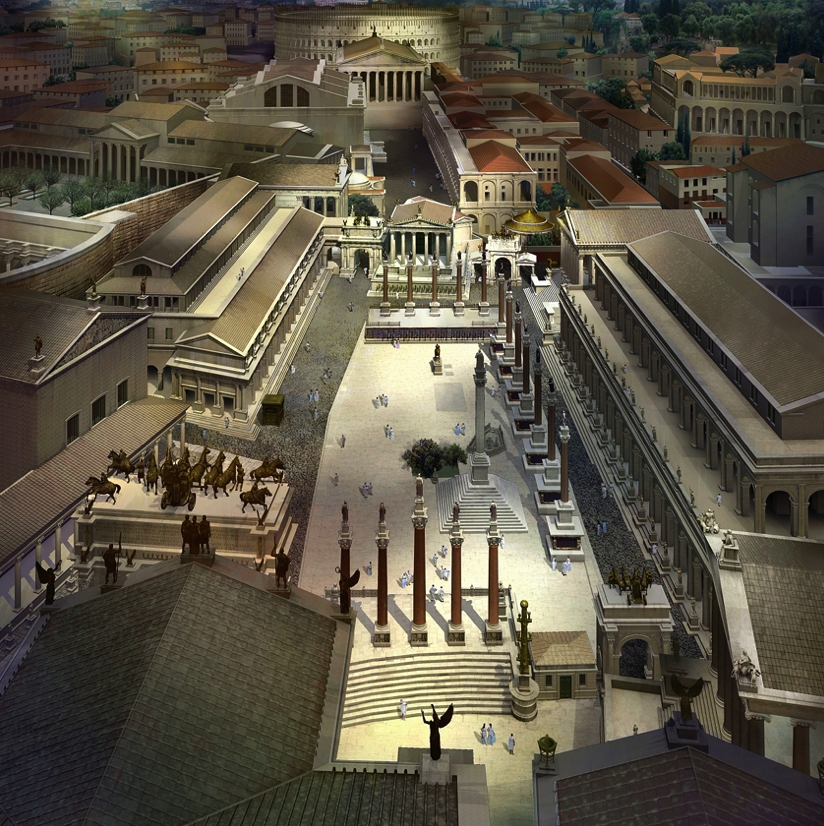
Forum Romanum reconstruction (The Roman Forum: A Reconstruction and Architectural Guide – Cambridge University Press)

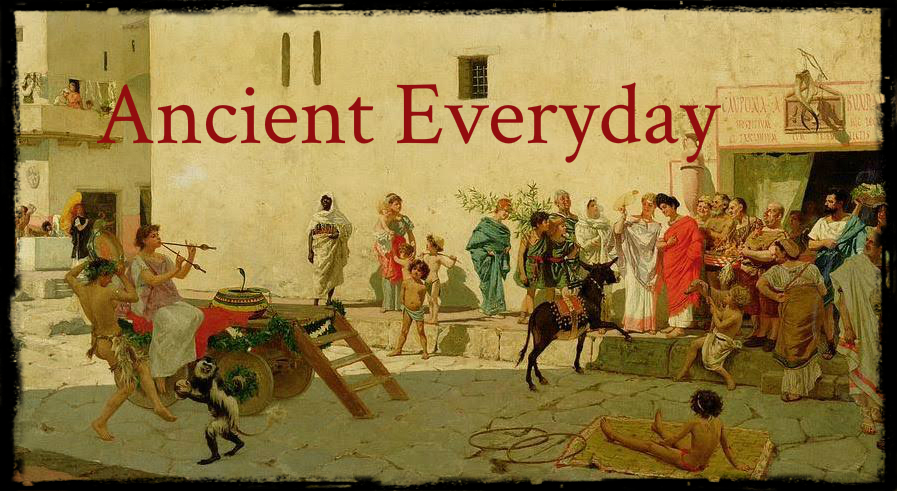
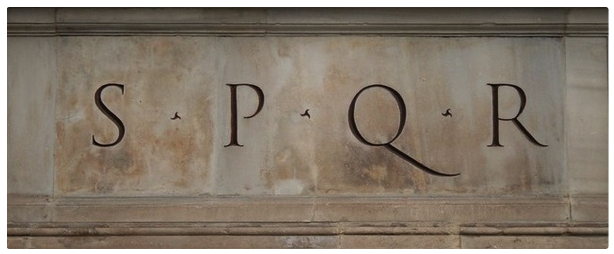

Hi Adam , How you manage to write such a superb post during these trying times is really appreciated. Now ,I am not one for politics but from reading the above post I think the people would have been better off with an Emperor seeing that he was able to control the Senates power which would have been better for the lives of the citizens at that time. This is how I would have preferred it anyway.
Hi Rita. Glad you enjoyed this post – I’m not all that into politics either, to be honest, but the process in Rome is interesting. As for writing and researching in these trying times, well, history and writing is my escape, my way to stay sane. I have to say I am leaning toward living during the relative peace of the reign of Antoninus Pius. I do see the merits of both the Republican and Imperial systems, but no system is perfect, and most men certainly aren’t. I wonder if there ever was a near-perfect time during Rome’s history. I’ve heard about the reign of King Numa, but I don’t know enough about him to say. It is fun to think about though, isn’t it? Thank you for your comment. Stay safe!
Hi Adam, Oh yes I agree it’s fun to think about. As a matter of fact I am now reading a book about my favourite Roman character. Severus and I am ashamed to say that I never realized he was black. The book is called Severus the Black Caesar by Steve Exeter. I was also astonished to know that he did not like the Roman’s in the beginning, so it is most interesting to read how he climbed the ranks to become Caesar. Eagerly waiting your next book Adam. Hope all is well with you and stay safe. I agree that delving into Ancient History in these trying times keeps one sane.
Hi Adam, always such an amazing read. I’m for Antonius Pius. His achievements for the people of Rome and empire in general how him in good stead.
Thank you for the kind words, Mike! I’m with you on this – the reign of Antoninus Pius would be my choice as well! 🙂